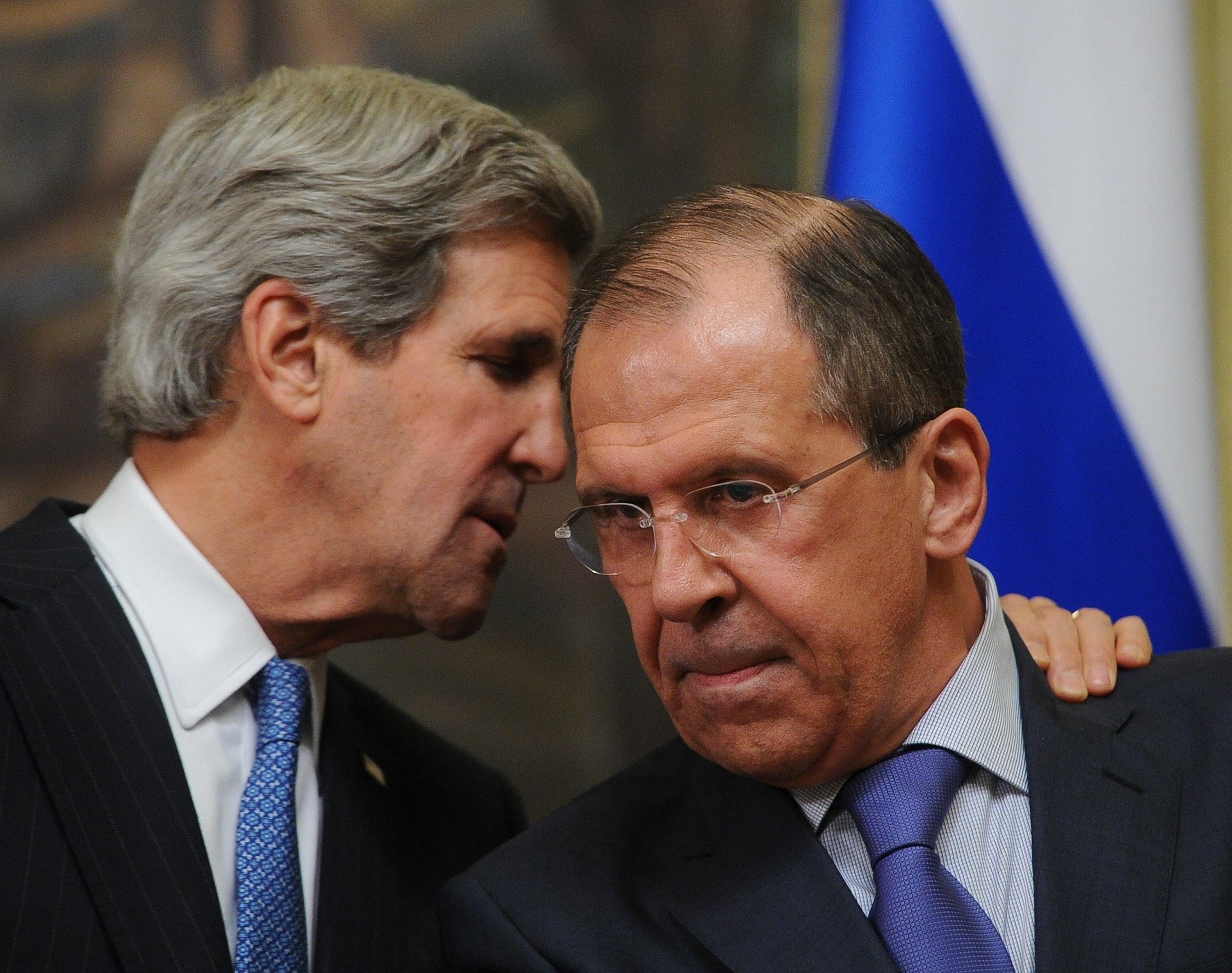ID :
366223
Wed, 05/06/2015 - 10:46
Auther :
Shortlink :
https://oananews.org//node/366223
The shortlink copeid
Lavrov, Kerry discuss situations in Syria, Yemen, Donbass - Russian Foreign Ministry

MOSCOW, May 5. /TASS/. Russian Foreign Minister Sergey Lavrov and US Secretary of State John Kerry had a phone conversation on Tuesday, the Russian Foreign Ministry said in a statement.
The conversation was requested by the American side.
The two top diplomats "discussed the tasks to promote settlement in Syria and Yemen, certain aspects of the situation in Donbass in the context of the Ukrainian crisis, as well as separate issues of bilateral relations," the statement said.
Lavrov and Kerry have maintained regular contacts through holding both personal meetings and phone talks. The current conversation was the third one over less than a month. The previous conversation took place April 29. It focused on Ukraine, in particular, the necessity to form working subgroups within the framework of the Contact Group as soon as possible.
Before that, the Russian foreign minister and the US secretary of state spoke by phone on April 13, paying particular attention to the situation around talks on Iran’s nuclear program and the conflict in Yemen.
Syria
According to UN statistics, fighting between Syrian government troops and militants has killed more than 200,000 people and displaced millions since its start in 2011.
Yemen
Confrontation between Yemeni authorities and Shiite rebels - Houthis - became more intense in August 2014. In January 2015, the military wing of Houthis, Ansar Allah, captured the country’s capital Sanaa. Under pressure from rebels, President Abd Rabbuh Mansur Hadi and the government led by Khaled Mahgouz Bahah resigned.
The Yemeni president was forced to move to Aden. After Houthis entered the city on March 25, he left the country.
Hadi called on Persian Gulf monarchies to interfere. On March 26, Saudi Arabia, supported by regional allies, launched an air operation against Houthis, codenamed Decisive Storm. Later it turned into another operation, Renewal of Hope.
According to UN data, at least 646 civilians have been killed and over 1,364 civilians wounded in Yemen on March 26 - May 3.
Iran
Iran says it needs nuclear power to generate electricity, but Western powers led by the United States claim Tehran's eventual aim is to create nuclear weapons.
At a meeting in Vienna in November 2014, the P5+1 and Tehran agreed to extend the deadline for a deal in the talks on Iran’s nuclear program to June 30, 2015.
The P5+1 is the five permanent members of the UN Security Council - the United States, Russia, China, the United Kingdom, and France - plus Germany.
The latest round of talks between Iran and the P5+1 in Lausanne ended April 2, 2015 with the conclusion of a joint comprehensive action plan on the Iranian nuclear program, to be adopted by the end of June.
As the plan is being implemented, all political and economic sanctions are to be lifted from Tehran. Meanwhile, on April 9, 2015 media quoted Iranian President Hassan Rouhani as saying that if sanctions are not lifted first, Iran will not sign the nuclear deal with the six international negotiators.
Ukraine
On February 12, participants of the Contact Group on settlement of the situation in Donbass signed in Minsk a document earlier agreed with leaders of the Normandy Four (Russia, Germany, France and Ukraine), which envisioned cessation of fire, withdrawal of heavy armaments from the contact line as well as political settlement measures, including establishment of working subgroups as priority tasks.
The subgroups will focus on four areas: economic issues and restoration of facilities; refugees, internally displaced persons and humanitarian assistance; political issues; security issues.
Clashes between Ukrainian troops and local militias during Kiev’s military operation, conducted since mid-April 2014, to regain control over the breakaway territories, which call themselves the Donetsk and Lugansk People's republics and constitute parts of the Donetsk and Lugansk regions, have left thousands dead and forced hundreds of thousands of people to flee Ukraine’s embattled east.
The parties to the Ukrainian conflict mediated by the Organization for Security and Cooperation in Europe (OSCE) agreed on a ceasefire at talks in September 2014 in the Belarusian capital Minsk.
The ceasefire has reportedly been numerously violated since. There have been several meetings of the Trilateral Contact Group on east Ukrainian settlement comprising representatives of Russia, Ukraine and the OSCE and of the Normandy Four aimed at finding ways to diplomatically and politically settle the intra-Ukrainian conflict.
Read more





